- Sales and strategic planning teams see IoT as the most valuable.
- IoT advocates are 3X as likely to consider big data critical to the success of their initiatives & programs.
- Amazon and Cloudera are the highest ranked big data distributions followed by Hortonworks and Map/R.
- Apache Spark MLib is the most known technology on the nascent machine learning landscape today.
These and many other excellent insights are from Dresner Advisory Services’ 2016 The Internet of Things and Business Intelligence Market Study published last month. What makes this study noteworthy is the depth of analysis and insights the Dresner analyst team delivers regarding the intersection of big data and the Internet of Things (IoT), big data adoption, analytics, and big data distributions. The report also provides an analysis of Cloud Business Intelligence (BI) feature requirements, architecture, and security insights. IoT adoption is thoroughly covered in the study, with a key finding being that large organizations or enterprises are the strongest catalyst of IoT adoption and use. Mature BI programs are also strong advocates or adopters of IoT and as a result experience greater BI success. IoT advocates are defined as those respondents that rated IoT as either critical or very important to their initiatives and strategies.
Key takeaways of the study include the following:
- Sales and strategic planning see IoT as the most valuable today.The combined rankings of IoT as critical and very important are highest for sales, strategic planning and the Business Intelligence (BI) Competency Centers. Sales ranking IoT so highly is indicative of how a wide spectrum of companies, from start-ups to large-scale enterprises, is attempting to launch business models and derive revenue from IoT. Strategic planning’s prioritization of IoT is also driven by a long-term focus on how to capitalize on the technology’s inherent strengths in providing greater contextual intelligence, insight, and potential data-as-a-service business models.
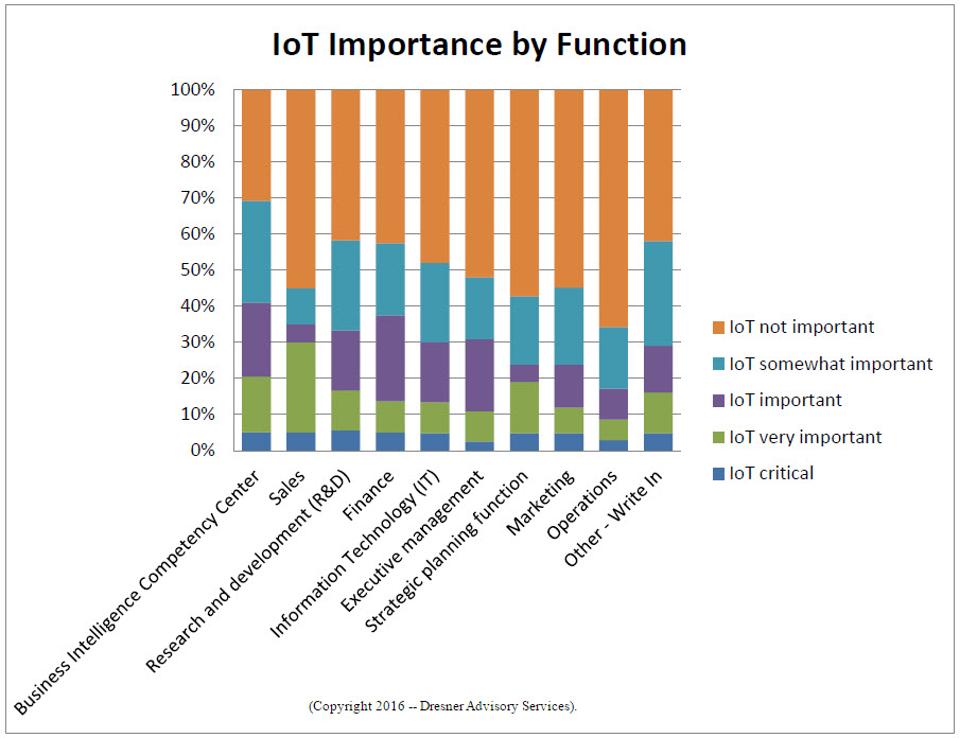
- Biotechnology, consulting, and advertising are the industries that believe IoT is the most important to their industries.Adoption of IoT across a wide variety of industries is happening today, with significant results being delivered in manufacturing, distribution including asset management, logistics, supply chain management, and marketing. The study found that the majority of industries see IoT as not important today, with the exception of biotechnology.
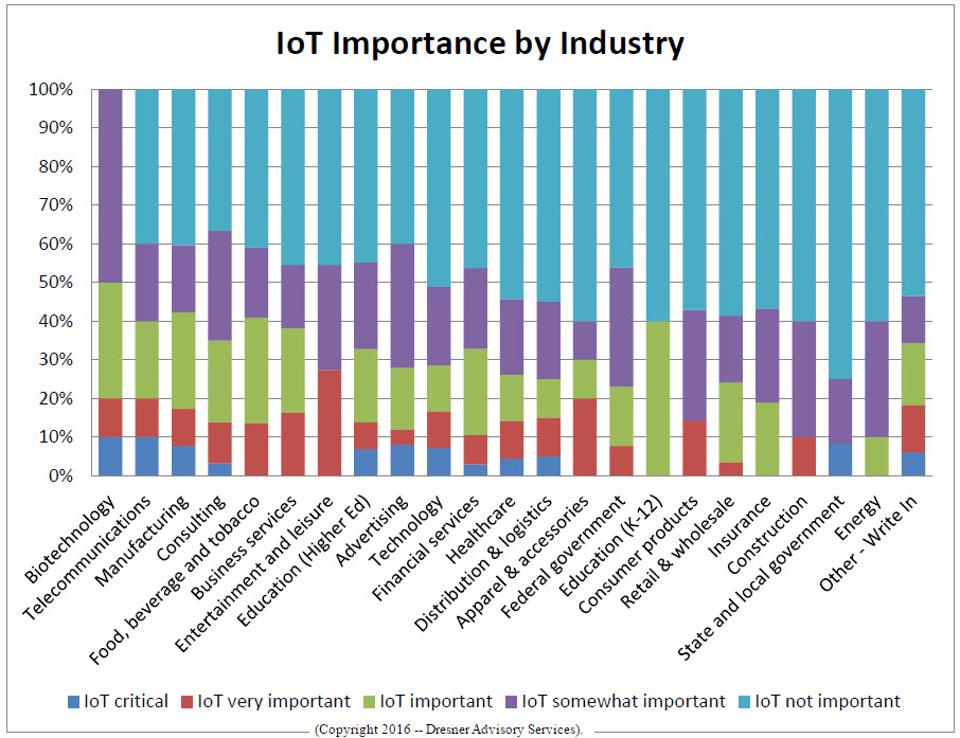
- Location intelligence, mobile device support, in-memory analysis, and integration with operational systems are the four areas that most differentiate IoT advocates’ interests and focus.Compared to the overall sample of respondents, IoT advocates have significantly more in-depth areas of focus than the broader respondent base. The four areas of location intelligence, mobile device support, in-memory analysis, and integration with operational systems show they have a practical, pragmatic mindset regarding how IoT can contribute greater process efficiency, revenue and integrate with existing systems effectively.
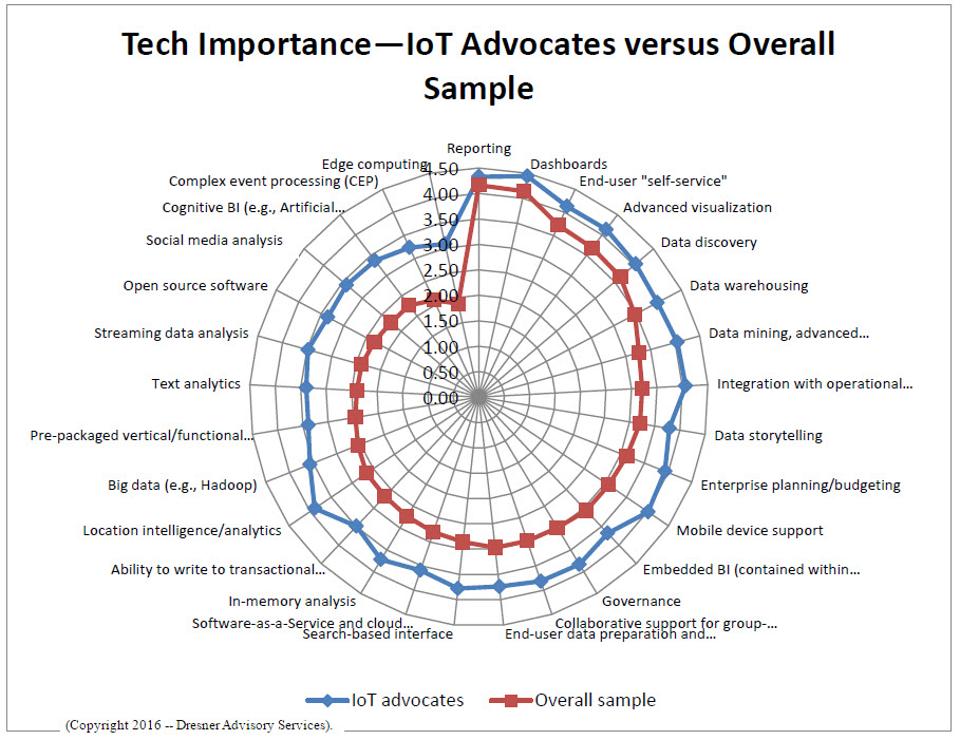
- An organization’s ability to manage big data analytics is critically important to their success or failure with IoT. IoT advocates are 3X as likely to consider big data critical, and 2X as likely to consider big data very important. The study also found that IoT advocates see IoT as a core justification for investing in and implementing big data analytics and architectures.
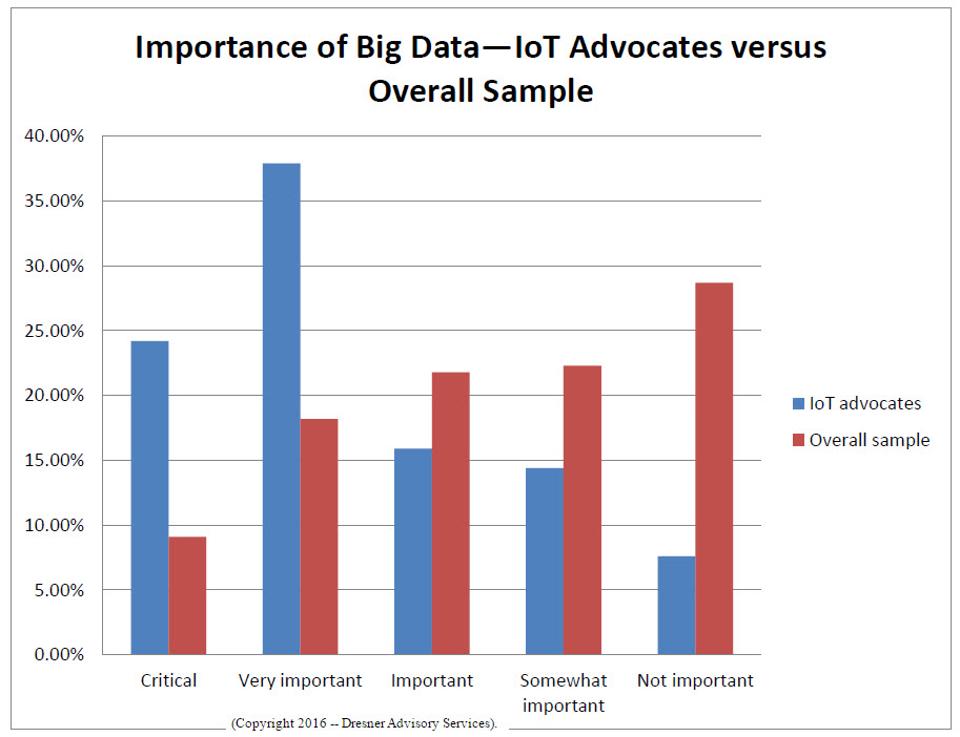
- Data warehouse optimization, customer/social analysis, and IoT are the top three big data uses cases organizations are pursuing today according to the study. Data warehouse optimization is considered critical or very important to 50% of respondents, making this use case the most dominant in the study. Large-scale organizations are adopting big data to better aggregate, analyze and take action on the massive amount of data they generate daily to drive better decisions. One of the foundational findings of the study is that large-scale enterprises are driving the adoption of IoT, which is consistent with the use case analysis provided in the graphic below.
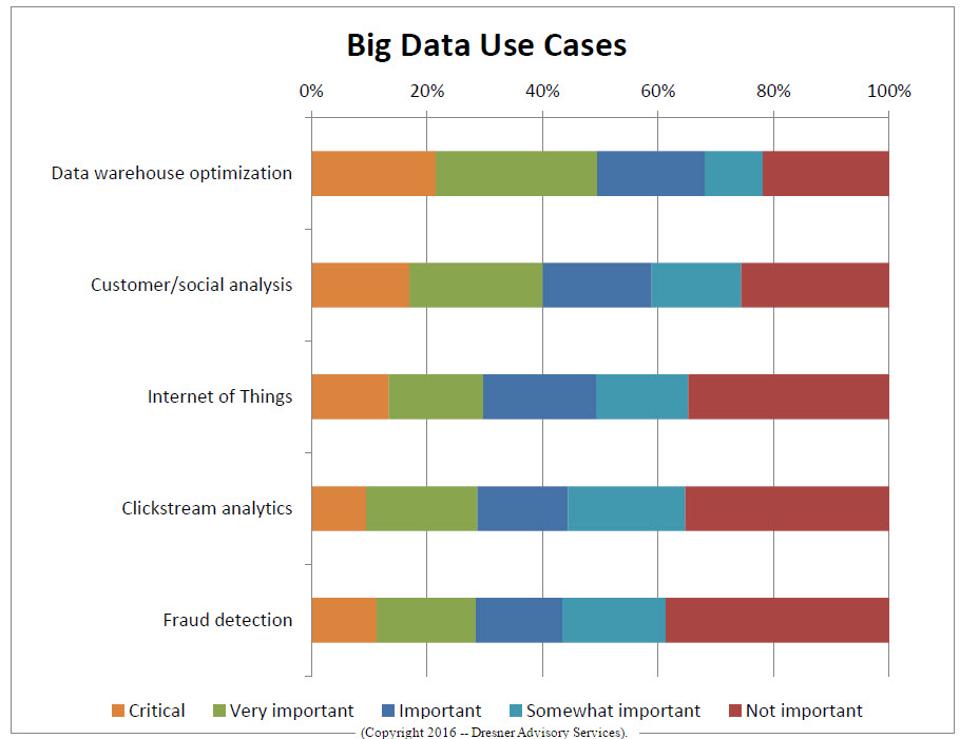
- IoT advocates are significantly above average in their use of advanced and predictive analytics today. The group of IoT advocates identified in the survey is 50% more likely to be current users of advanced and predictive analytics apps as well. The study also found that advanced analytics users tend to be the most sophisticated and confident BI audience in an organization and see IoT data as ideal for interpretation using advanced analytics apps and techniques.
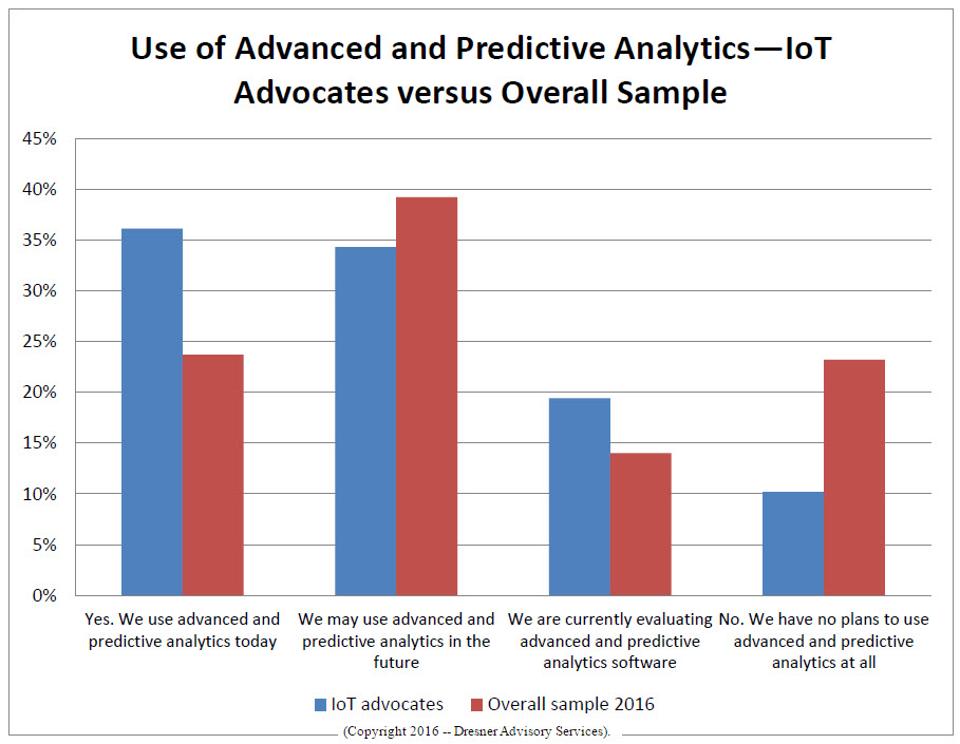
- Business intelligence experts, business analysts and statisticians/data scientists are the greatest early adopters of advanced and predictive analytics. More than 60% of each of these three groups of professionals is using analytics often, which could be interpreted as more than 50% of their working time.
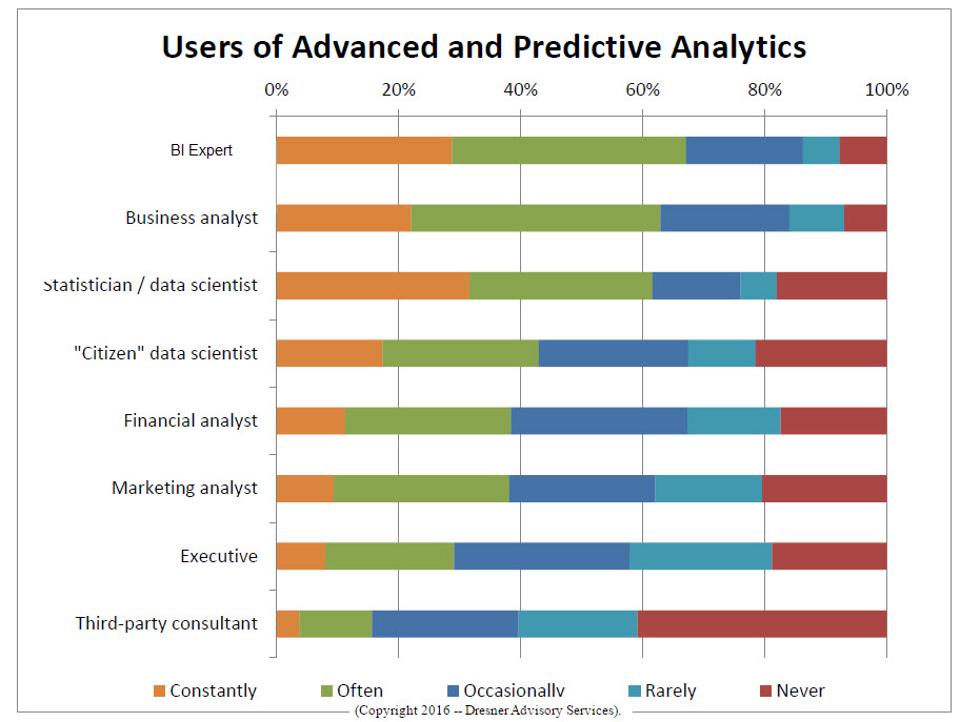
- Relational database support, open client connectors (ODBC, JDBC) and automatic upgrades are the three most important architectural features for cloud BI apps today. Connectors and integration options for on-premises applications and data (ERP, CRM, and SCM) are considered more important than cloud application and database connection options. Multitenancy is considered unimportant to the majority of respondents. One factor contributing to the unimportance of multi-tenancy is the assumption that this is managed as part of the enterprise cloud platform.
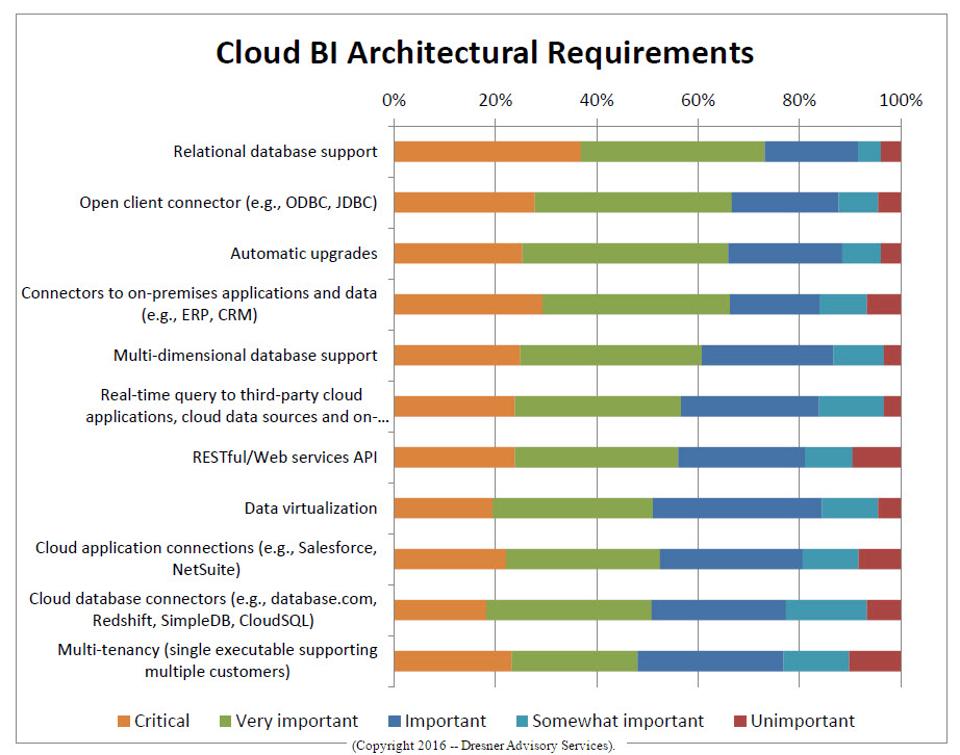
- MapReduce and Spark are the two most known and important big data infrastructure technologies according to respondents today. 48% believe that MapReduce is important and 42% believe Spark is. The study also found that all other categories of big data infrastructure are considered less important as the graphic below illustrates.
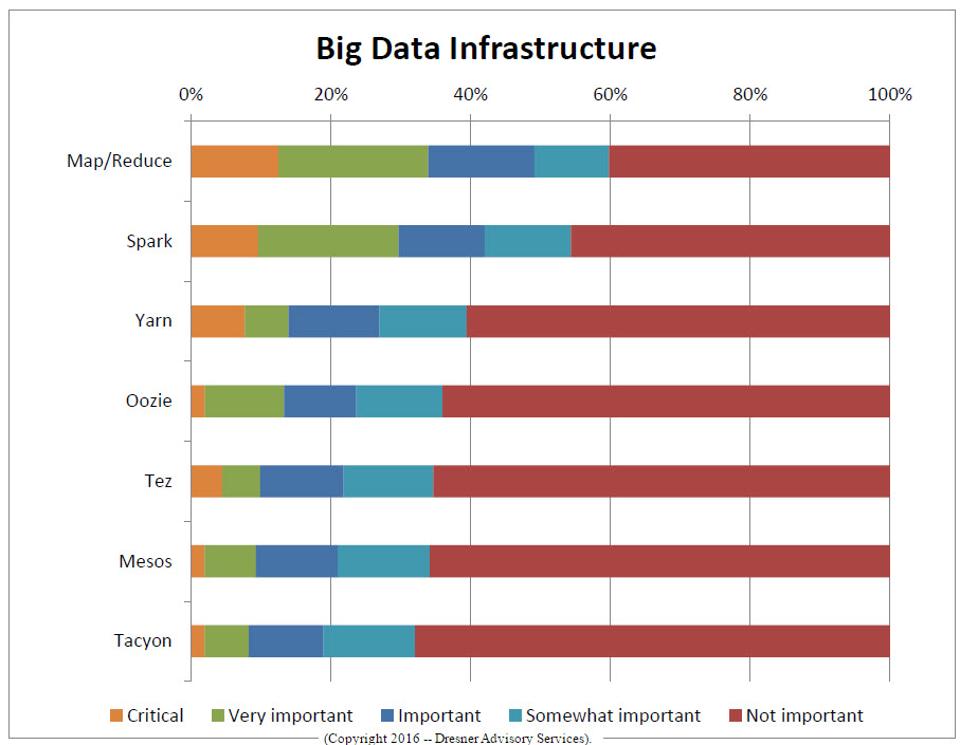
Forbes, 4 oktober 2016




